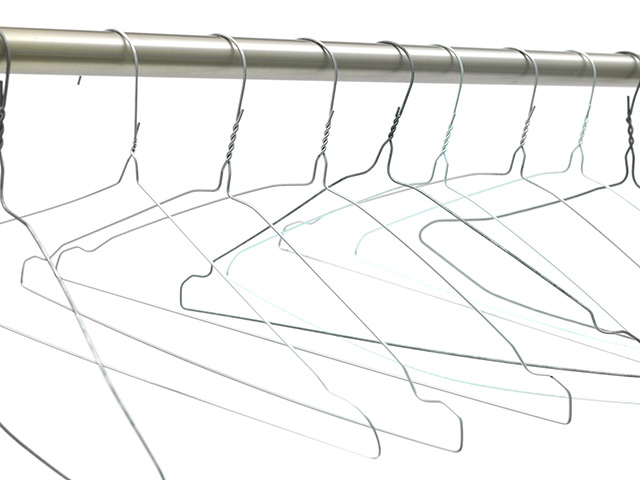Musk claims SpaceX Starlink internet speed will double this year
02/25/2021 / By Franz Walker

SpaceX founder and CEO Elon Musk said the speeds of its Starlink satellite internet service “will double” in 2021 as it continues to build out its global consumer network.
“Speed will double to ~300Mb/s and latency will drop to ~20ms later this year,” said Musk on Monday, Feb. 22, in a tweet responding to a user who showed speed tests ranging from 77 to 130 Megabits per second (Mbps).
Currently, Starlink routers reach speeds between 50 and 150 Mbps. But some users have reported speeds well above that level – one user even reported speeds going up to 215 Mbps.
Starlink growing in speed and coverage
In a succeeding tweet, Musk said the satellite internet service would reach customers around “most” of the Earth by 2021 and complete global coverage would be achieved by next year.
Musk emphasized that Starlink, similar to other satellite broadband services, is currently intended for customers living in areas with “low to medium population density.”
He conceded that traditional methods of providing internet would still have the advantage outside of these areas. “Cellular will always have the advantage in dense urban areas,” Musk said.
The service is currently in what SpaceX calls its “Better Than Nothing Beta” test. This test has already seen some success in rural areas, such as in the Pikangikum First Nation in Canada.
Subscribing to the beta currently costs $99 a month. This is on top of a further $499 for the Starlink kit, which includes a WiFi router, mounting tripod and a terminal to connect to the satellites. So far, the service has around 10,000 users participating in the beta test.
On Feb. 16, the company started offering preorders of Starlink to other countries, such as Australia, New Zealand and Mexico. Users can now put down a $100 deposit to get their hands on the service once it becomes available where they live.
Overall, users will be paying $600 upfront for the service.
Questions raised about Starlink and federal funding
For Starlink to reach both the speed and the coverage that Musk is aiming for, SpaceX needs to roll out more satellites. To date, the company has launched more than 1,000 satellites for Starlink. Its goal is to have up to 42,000 satellites in orbit by mid-2027.
Launching such satellites is expensive. SpaceX won $885 million in federal subsidies to expand Starlink. But many small internet service providers (ISP) are saying that this shouldn’t be allowed because the service is using “unproven technology. (Related: Is Elon Musk selling HYPE rather than reliable vehicles?)
These small ISPs are asking the Federal Communications Commission (FCC) to “aggressively” vet winning applications submitted by satellite and fixed wireless providers for federal funds as part of the Rural Digital Opportunity Fund. The latter is meant to help provide broadband access to millions of people in rural areas and regions too costly to serve.
“Our concern really hinges on the fact that a number of bidders, they bid into higher speed categories with technologies that have not been proven to meet those speeds,” said Jim Matheson, CEO of the National Rural Electric Cooperative Association, which represents over 900 electric cooperatives. “A couple of examples SpaceX bid into the 100 down 20 megabits and up category, with their satellite program that’s still in beta testing not a proven technology.”
Matheson then cited examples of companies that received millions of dollars in federal funds to expand broadband internet service to rural services but failed to do so. These included CenturyLink and Frontier Communications, which recently announced that they had failed to meet the deployment deadline when they received the funds.
In addition, Matheson and other critics, including the National Rural Telecommunications Cooperative, Midwest Energy & Communications in Michigan, and Choptank Electric Cooperative in Maryland, also raised concerns that some of the locations SpaceX is targeting for Starlink are non-rural. The latter is expected to cover areas such as the Bronx in New York City as well as airports in Newark, New Jersey and Miami.
Follow ElonMuskWatch.com for more news on SpaceX, Starlink and other companies and services Musk has put up.
Sources include:
Tagged Under: Big Tech, broadband, Elon Musk, FCC, federal funding, internet, satellite Internet, SpaceX, starlink, tesla, WiFi
RECENT NEWS & ARTICLES
COPYRIGHT © 2017 BigTech.news
All content posted on this site is protected under Free Speech. BigTech.news is not responsible for content written by contributing authors. The information on this site is provided for educational and entertainment purposes only. It is not intended as a substitute for professional advice of any kind. BigTech.news assumes no responsibility for the use or misuse of this material. All trademarks, registered trademarks and service marks mentioned on this site are the property of their respective owners.





















